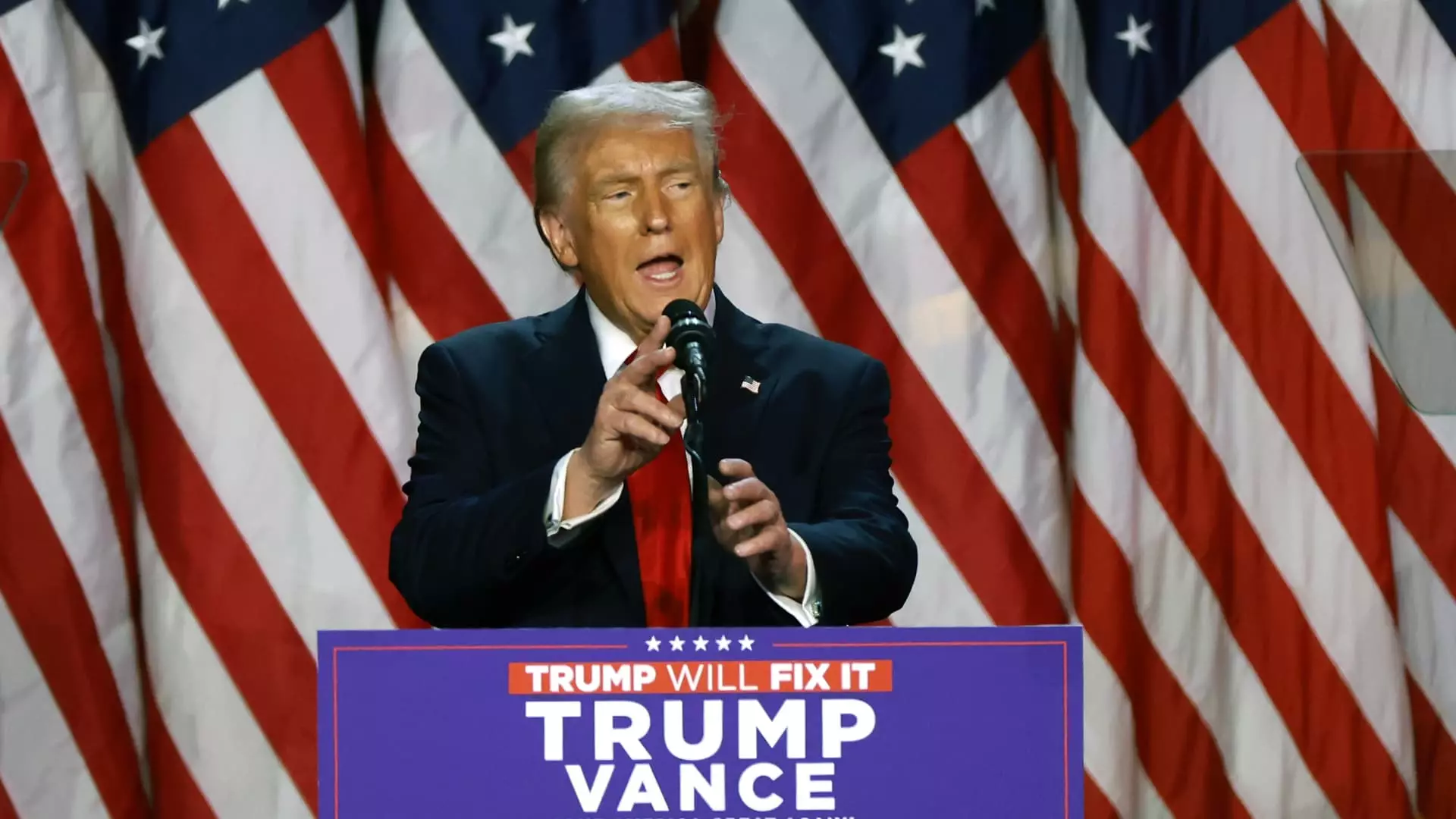The recent electoral victory of President Donald Trump in 2024 sent shockwaves through Wall Street, triggering an uptick in stock market performance that experts and analysts heralded as a sign of confidence in the new administration. Within a span of a few days, the Dow Jones Industrial Average, S&P 500, and Nasdaq all reached record heights. However, such market exuberance starkly contrasts with the general sentiments expressed by ordinary Americans regarding their financial stability. Financial specialists have identified this phenomenon as “vibecession,” a term that describes the apparent divide between stock market performance and the everyday financial experiences of the populace.
It’s vital to recognize that while the financial markets may be basking in a post-election glow, many individuals feel a palpable disconnect between these soaring indices and their personal financial landscapes. This disparity raises questions about the true health of the economy as experienced by everyday citizens. Experts urge a more nuanced understanding, suggesting that feelings of uncertainty and financial anxiety should not be disregarded, even if the market seems to thrive.
In the wake of political shifts and economic volatility, financial advisors emphasize the importance of focusing on elements within one’s control. According to certified financial planner Rianka Dorsainvil, the key lies in adhering to long-term financial strategies. “While external factors like government policy can create ripples in the economy, individuals must concentrate on the aspects of their finances they can manage,” she advises.
For many, this means refining their financial planning to account for both current needs and future aspirations. With numerous uncertainties looming, such as changes in fiscal policies and interest rates, it becomes increasingly important for individuals to bolster their financial security through proactive measures.
**1. Building an Emergency Fund:** One of the most effective ways to safeguard against economic uncertainty is to cultivate a robust emergency fund. Financial experts suggest targeting an amount equivalent to three to six months of living expenses. Keeping these savings in a high-yield account not only ensures accessibility but also allows funds to appreciate over time, providing peace of mind during turbulent financial periods.
**2. Maximizing Tax-Advantaged Savings Accounts:** Individuals should navigate the various options available for retirement savings. Understanding the tax implications of different accounts, such as 401(k)s and IRAs, can lead to significant long-term savings. According to financial advisor Lee Baker, taking advantage of employer-matched contributions is crucial. “Engaging with your 401(k) in a strategic manner can set a solid foundation for retirement,” he explains.
**3. Reviewing Health Benefits and Flexible Spending Accounts (FSAs):** Open enrollment periods are opportunities to evaluate health insurance and associated benefits. Utilizing accounts such as Health Savings Accounts (HSAs) can yield substantial tax benefits, as funds grow tax-free and may be used for qualified expenses. Experts recommend treating HSAs as a long-term investment vehicle while maximizing contributions for greater future benefits.
**4. Addressing Credit Card Debt:** Anxiety stemming from credit card debt can jeopardize financial stability. Advisors recommend a proactive approach—ceasing new charges and collaborating with a nonprofit credit counselor to forge a debt repayment strategy. By reducing liabilities, individuals position themselves better to weather economic shifts.
**5. Locating Unclaimed Assets:** Many people are unaware of unclaimed assets, which may sit untouched in previous bank accounts or annuities. A straightforward search through state treasurer offices or dedicated websites can uncover funds that deserve attention. Recovery of such assets is often a simple process that can provide unexpected financial relief.
Ultimately, individuals should strive to avoid being swayed by the frequent fluctuations of the market and fear-inducing news cycles. Rianka Dorsainvil emphasizes the importance of consistent financial practices that withstand economic turbulence, regardless of political climates. By adopting foundational strategies, individuals can establish a resilient financial framework that empowers them to navigate uncertain times effectively.
The disparity between market successes and personal financial struggles reveals a critical narrative that many fail to acknowledge. By focusing on informed financial decision-making and leveraging available resources, individuals can enhance their financial wellness and prepare for whatever economic challenges arise in the future.

Leave a Reply